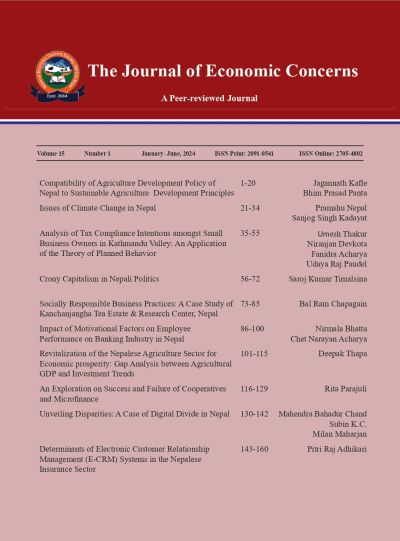Crony Capitalism in Nepali Politics
DOI:
https://doi.org/10.3126/tjec.v15i1.70240Keywords:
Capitalism, Crony Capitalism, Politics, Interference, Corporate HegemonyAbstract
The objective of this paper is to examine how crony capitalism undermines Nepali politics. The author of this course drew information from both primary and secondary sources, including key informant interviews, academic works by international authors found online, and social media posts. Since this is a qualitative study, the researcher has interpreted the data gathered while performing the research using descriptive and analytical methodologies. The author of the following article intended to elucidate the basic concept of crony capitalism while also revealing Nepali politics and the impact of businesspeople. The article discusses "crony capitalism," a term used to describe
unjustified financial gain stemming from unequal administrative and political connections amongst business owners. While non-Western economies are typically linked with the term "crony capitalism," cronyism can arise in any economy due to three main factors. One must exercise caution when identifying cronyism, as what looks like cronyism is often a mediocre solution to an ineffective government program already in place. As a result, cutting cronyism without also cutting the size and reach of the government is challenging. The term "crony capitalism" refers to an economy where the success of corporations is based on close ties between business owners and public authorities. This includes favoritism in the granting of licenses, government subsidies, special tax exemptions, and
other forms of interventionist behavior.




